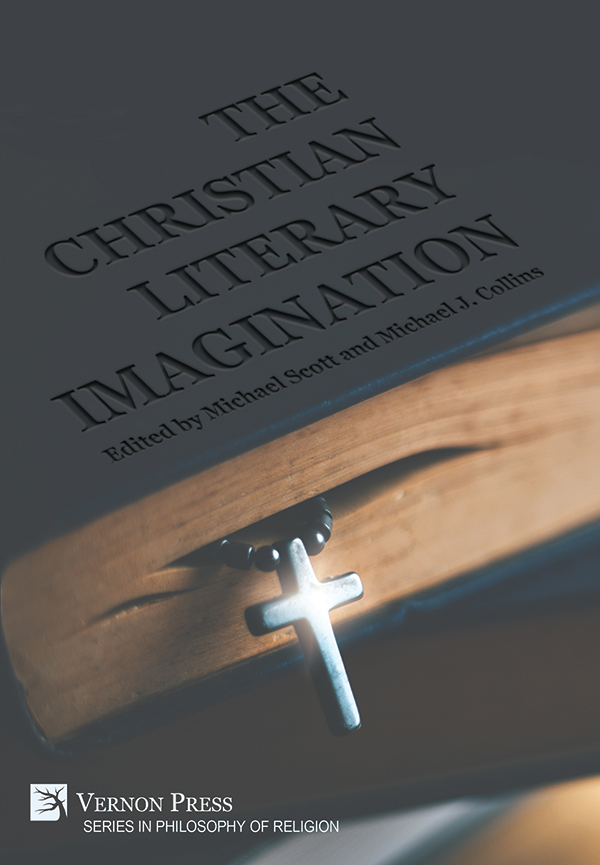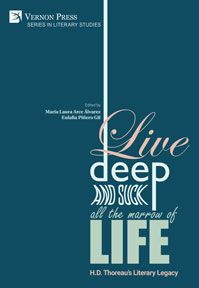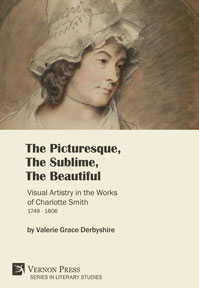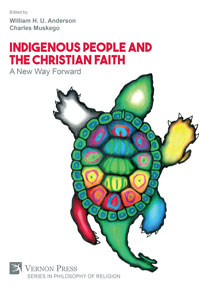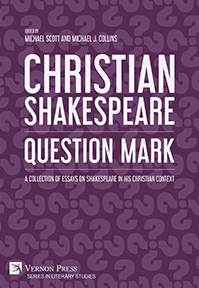The Christian Literary Imagination
Michael Scott, Michael J. Collins (Eds.)
by John Drakakis (University of Stirling)
This volume adeptly presents an impressive plurality of voices, from the authors that it includes, ranging from celebrated academics to emerging scholars, to the literary figures that they present, from the classic to the marginalized. The ground covered, too, is expansive. The collection of essays successfully charts the trajectory of the Christian literary imagination from the medieval to the modern, exploring a range of topics, including those often overlooked within the field, such as gender, sexuality, and colonialism. In melding the historical with the theological, contextual implications for faith are expounded, but so too is the enduring significance of Christian literature for today. The multiplicity of voices within this volume coalesce to speak to the durability of religious and artistic transcendence, as Radcliffe’s chapter elucidates, making this an essential reading for scholars and students in the field. The editors should be applauded for fruitfully drawing together a series of engaging essays that not only effectively portray the Christian literary imagination but work cohesively to reimagine its scope.
Anna Blackman
Lecturer in Catholic Religious Education
University of Glasgow
Imagination ranges far and wide shaping human creativity, prayer, and all the scenes of life. In a marvellous series of chapters, often focusing on an individual poet or philosopher, we are served a feast. Whether at the extremities of thought in a quest for God (Anselm) or in a portrait of two types of Christian (Chaucer) or in metaphor and theme (Shakespeare) or in a judgment on slavery and a celebration of female heroism (Elizabeth Browning) or in many other ways highlighting other writers (e.g. Graham Greene, Robert Browning, TS Eliot, Marilyn Robertson) we read invigorating scholars drawing on more than 1000 years of literature. A book to treasure.
William Kay
Professor of Theology Emeritus
Wrexham University
“The Christian Literary Imagination” is a labor of love and a timely gift to the humanities. For some, these rich essays will renew a tradition. For others, the good of literature itself will be affirmed.
Lee Oser
Professor of English
The College of the Holy Cross
In a secular post-Christendom age, one wonders whether a Christian imagination can still permeate literature, art, and culture. Authors in this book skillfully explore important content of such an imagination as it developed in key literary figures in history with optimistic implication that such content has enduring value for the future.
Anthony Tambasco
Professor of Theology Emeritus
Georgetown University
What is the Christian literary imagination? That question was put to the writers who have contributed to this collection of essays. They were asked, in answering it, to choose and write about a work of literature that seemed to them to illustrate one of the varied ways in which the Christian imagination sees the world, to define by example the meaning of the term. A variety of beliefs (or indeed unbeliefs) are expressed by the contributors and authors they selected to discuss. But what the essays have in common is an inquiry into the nature of belief and the means by which the reader’s imagination can itself be stirred through the work of the author under discussion.
The book is structured chronologically, with essays on literature ranging from Anglo-Saxon England to 21st-Century America, but the contributors show a freedom of movement and reference across the centuries in their essays, sometimes deliberately juxtaposing the historical with the contemporary. What emerges from the collection is a shared inquiry into the enduring Christian vision of God’s engagement with the world.
Michael Scott is Fellow and Senior Dean at Blackfriars Hall, Oxford, and is Senior Advisor to the President and Director of The Future of the Humanities Project at Georgetown University, Washington DC. He was the Founding Vice Chancellor of Wrexham Glyndwr University, Wales, where he is Emeritus Professor of English and Theatre Studies and was previously Head of the School of Arts and Humanities and Pro Vice Chancellor of De Montfort University, Leicester, England. He was the founding and general editor of the 'Text and Performance Series' and 'The Critics Debate Series.' His books include 'John Marston’s Plays: Theme Structure and Performance'; 'Renaissance Drama and A Modern Audience'; 'Shakespeare and the Modern Dramatist'; 'Harold Pinter: A Collection of Critical Essays' (ed); 'Talking Shakespeare' (ed with Deborah Cartmell); 'Shakespeare’s Comedies: All That Matters'; 'Shakespeare’s Tragedies: All That Matters' and 'Shakespeare: A Complete Introduction.' He has also written two novels: 'Hamlet and the Psychotherapist: A Novel' and 'The Scottish King, Macbeth and the Psychotherapist: A Novel.'
Michael J. Collins is Professor of English and Dean Emeritus at Georgetown University and an Honorary Fellow of Wrexham Glyndwr University. He is the editor (with Francis J Ambrosio) of 'Text and Teaching: The Search for Human Excellence' and (with Michael Scott) of 'Christian Shakespeare: Question Mark.' He has taught modern British literature at Georgetown and has published frequently on modern British poets and playwrights. He received the Bunn Award for Outstanding Teaching from Georgetown College in 2006.
Spirituality, Medieval Religious Beliefs, Renaissance Religion, 2Oth Century Catholic Writers, Victorian Christian Writers, Religion and Politics, Scholasticism in the 20th Century, Pope Francis, Anglo-Welsh Religious Literature

